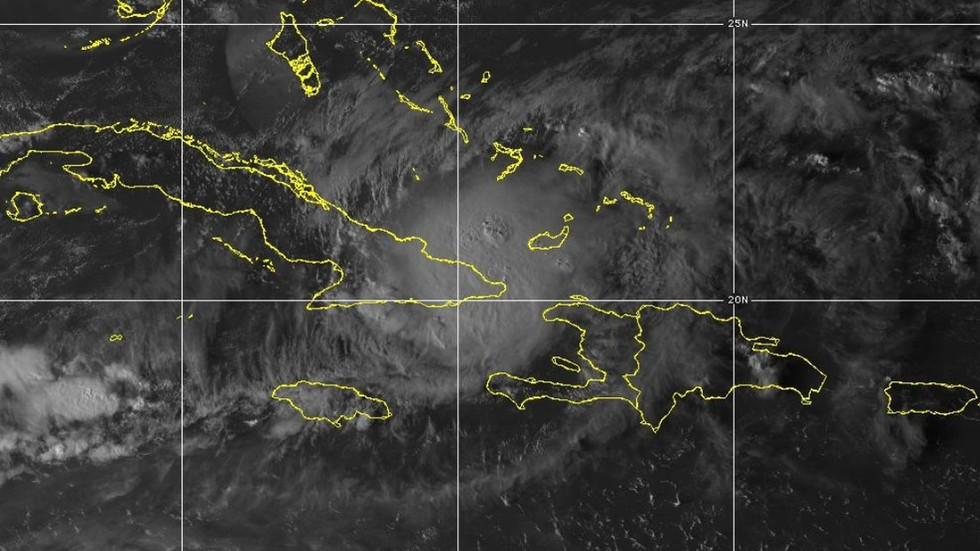Cuba has recently faced significant challenges as it plunged into darkness following the collapse of its largest power plant. The crisis escalated just before Hurricane Oscar made landfall on Sunday, bringing heavy rains and strong winds to an island already grappling with a massive power outage. The hurricane, classified as a Category 1 storm with maximum sustained winds of nearly 80 mph, made landfall near Guantanamo, particularly impacting the city of Baracoa. By Sunday evening, the storm had weakened, yet it posed ongoing risks of flash flooding and mudslides in eastern regions of Cuba. The timing of the hurricane exacerbated the ongoing issues with the national grid, which had already left countless residents without power for several days.
In the days leading up to the hurricane’s arrival, Cuba was coping with its worst blackout in over two years. Electrical services were temporarily restored but quickly failed again, causing widespread disruption. The government assured the public that most areas would have power restored by Monday evening, yet the reality was grim. With electricity and air conditioning out of reach, many families were also deprived of water, as the electric pumps that supply it were non-functional. In response to the dire situation, many resorted to cooking with firewood in the streets, while food that had been stored in refrigerators began to spoil.
Havana, the Cuban capital, was largely darkened, although some hotels and hospitals managed to operate using emergency generators. In the face of these conditions, Cuban President Miguel Diaz-Canel stated that authorities were doing everything possible to secure the welfare of citizens and economic resources in light of Hurricane Oscar’s impending arrival. His administration’s focus included restoring electrical services and managing the associated fallout from the storm and the grid’s failure.
However, the president also issued a stern warning against any attempts to disturb the public order during this tumultuous period. He emphasized that the government would take severe actions against such disturbances amid ongoing societal struggles exacerbated by the blackout and inflation. The backdrop of these troubles includes a scarcity of essential resources, including food, medicine, fuel, and water, intensifying the desperation felt by many Cubans.
Cuban officials, including Foreign Minister Bruno Rodriguez, attributed much of the crisis to a long-standing US trade embargo that has made it difficult for the island to acquire necessary fuel and spare parts for its power infrastructure. The government has repeatedly linked this embargo, which has seen increased sanctions during the Trump administration, as a primary contributor to the challenges facing the country. Rodriguez’s comments resonated with many Cubans, who perceive the embargo as the main obstacle responsible for the limitations and suffering experienced in recent times.
In a broader context, Cuba has experienced frequent power outages over the decades due to ongoing economic crises. The pressure on the island’s infrastructure has regularly led to public discontent, as seen in July 2021 when prolonged blackouts triggered widespread protests across the nation. The current situation, compounded by the effects of Hurricane Oscar and the collapse of the electrical grid, threatens to reignite public frustration and unrest as citizens find themselves grappling with long-standing issues that challenge the very stability of daily life in Cuba.

